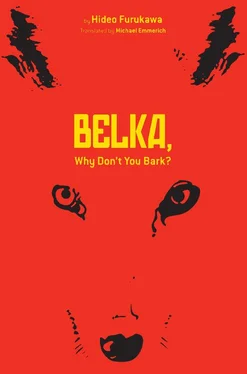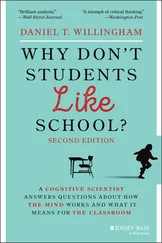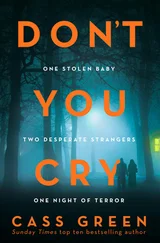Guitar didn’t just keep this power, he honed it. There was no surprise in that. All sorts of drugs—marijuana, heroine, cocaine, speed, and various new products—were constantly being carted into the estate and then whisked back out. Guitar smelled them all as a matter of course. And identified them. Because the custom was the same at home: Guitar would smell the drugs, tell the pure from the impure, and when he was right his master would praise him.
His master. The Hellhound.
So Guitar became two . The Hellhound’s second alter ego. Cabron’s son, a drug-sniffing dog like his father. His talent in this department was an undeniable sign of his twoness . And as it happened, two was better than one —in very little time, he had surpassed his father. Indeed, he even surpassed his true mother. 1976. Guitar was the Hellhound’s alter ego, and the Hellhound was Guitar’s alter ego.
The Hellhound’s business was growing. First, things started happening with his associates. The Asian organization, whose boss the younger of the Samoan twins was still serving as a “secretary,” was active across Indonesia, Malaysia, and Pakistan. Its operations were based in the so-called “Islamic world.” But of course not all Islamic countries were brothers. Far from it. Take Pakistan, for instance. Pakistan’s western border ran up against Afghanistan. The line had been drawn by the British in 1893, splitting the traditional homeland of the Pashtuns in two. The British had completely ignored the history and distribution of local ethnic groups. So Afghanistan insisted that the rest of the Pashtun area, in Pakistan, was really Afghan territory as well, and this led to all kinds of disputes. Pakistan was first established—after its independence from Britain—in 1947, and within two years the countries had broken off diplomatic relations. The fact that both nations were Islamic didn’t help anything. Something else thawed the ice, though: in 1973, Afghanistan ended its monarchy and emerged as the Republic of Afghanistan.
Early on, the new republic’s foreign policy aligned closely with the USS.R, but within two years it began drifting away. At the time the international situation was very complex. The Cold War, between the USSR and the US, was playing itself out. At the same time, relations had grown tense between the USSR and China. In 1969, these two states engaged in armed conflict. China and India were enemies. They fought in the Himalayas in 1962. India and Pakistan were in a state of constant tension, and in 1971 the third Indo-Pakistani War broke out, leading to Pakistan’s defeat—for the third time. Having India as a common enemy brought China and Pakistan together. Since Afghanistan had been moving toward the USSR, the US decided it would be good strategy to get in with Pakistan. Pakistan, which was now friendly with both China and the US, necessarily came to view the USSR as an enemy. Then, in 1976, as the Republic of Afghanistan distanced itself from the USSR, the president reached out to the prime minister of Pakistan to explore the possibility of improving relations. He ended the border dispute—the argument over the line dividing the Pashtuns’ lands, that is. From that point on, Afghanistan and Pakistan began having all sorts of interactions. The most visible were those between the president and the prime minister; the least visible were those related to the drug trade. Poppy fields and purification plants across Afghanistan were “opened” to the population east of the national border. All at once. Huge quantities of high-quality hashish started flooding across as well. Previously the largest drug-producing region in Asia had been the so-called Golden Triangle on the border of Burma, Thailand, and Laos. The situation was different now. The criminal center, as it were, had shifted from Southeast Asia to Central Asia. And the organization the Hellhound had become tied up with was getting in on the game. In 1976 alone, the traffic didn’t merely double—and even that would have been incredible—it quadrupled. Bam, just like that. And so, again, in 1976, Guitar was the Hellhound’s alter ego, and the Hellhound was Guitar’s alter ego.
Guitar checked twice as much drugs, four times as much drugs. He took all the experience he’d accumulated so far and multiplied it by two, then multiplied it by two again. He became the best drug-sniffing dog the world had ever known.
Then in 1977, the boss of the Asian organization suddenly passed away, and the Hellhound took over the organization’s territory. The younger of the two Samoan twins became his local representative—in essence, he had been promoted, becoming the organization’s next Muslim boss. And so the Hellhound had two Samoan right-hand men: one to the west and one to the east of the Pacific Ocean. Two places, two men. The Hellhound supervised the two regions with equal care. In that one year, he made more than ten trips among Mexico City, Karachi, and Islamabad.
As did his alter ego.
Guitar, that is, flying with his master.
You, Guitar.
ME?
That’s right—you turned one, and then two, and in 1978 you turned three, and in 1979 you turned four. Isn’t that right?
THAT’S RIGHT.
Your mother accompanied you on those trips across the Pacific, from that side to this side and back again. Your alter ego, the Hellhound, was a true dogman. He understood how your mother felt (he understood her feelings as a dog, as a dog who was also a mother), so he never separated you. The Hellhound, who was your alter ego and also your master, all but worshipped your mother, Goodnight. She was his Madonna. And so there you were. You and your mother, flying over the Pacific, from this side to that side and back again—and again, and again. Your mother told you, didn’t she? I KNOW THE SIZE OF THIS OCEAN, she said. I HAVE FELT THE TRUE IMMENSITY OF THIS OCEAN. She spoke the truth. In the entire history of the twentieth century, there was only one dog who, having survived an inconceivably hellish period adrift on its waters, ever grasped the vast reality of the Pacific Ocean itself.
Listen, Guitar, in all humility.
OF COURSE.
Do you promise?
Woof! you bark.
And so you and your mother became dogs of both sides of the Pacific. Your sense of smell, Guitar, and your ability to use it to sniff out and appraise drugs, grew more sensitive with every day you spent on the front lines, where deals were struck and where the drugs were produced, and more sensitive with every year. In 1978, a coup d’état toppled the anti-Soviet Republic of Afghanistan and a new communist Democratic Republic of Afghanistan was created in its place. This political change did surprisingly little damage to your alter ego’s affairs. Why? Because the Democratic Republic of Afghanistan went overboard. For example, the previous flag had been heavy on green, the color of Islam, but now, all of a sudden, it was changed to a solid field of red, the symbol of communism. It was a bit too much. This “democratic republic” started oppressing antigovernment elements. Anticommunist members of the previous government, intellectuals, religious leaders—huge numbers were thrown in jail, executed. This was way too much. Armed rebellion broke out all over Afghanistan. The rebels declared that they were engaged in an Islamic jihad. They referred to themselves as mujahideen . Often these antigovernment organizations established their bases in neighboring countries… in Pakistan, say. And often they funded their activities with drug production and smuggling. As a result, from 1978 to 1979 your master doubled the quantity he trafficked once again. The mujahideen organizations began using him to funnel drugs from all over Afghanistan out of the country.
You gained twice as much experience as the year before. Two times two times two.
Читать дальше












